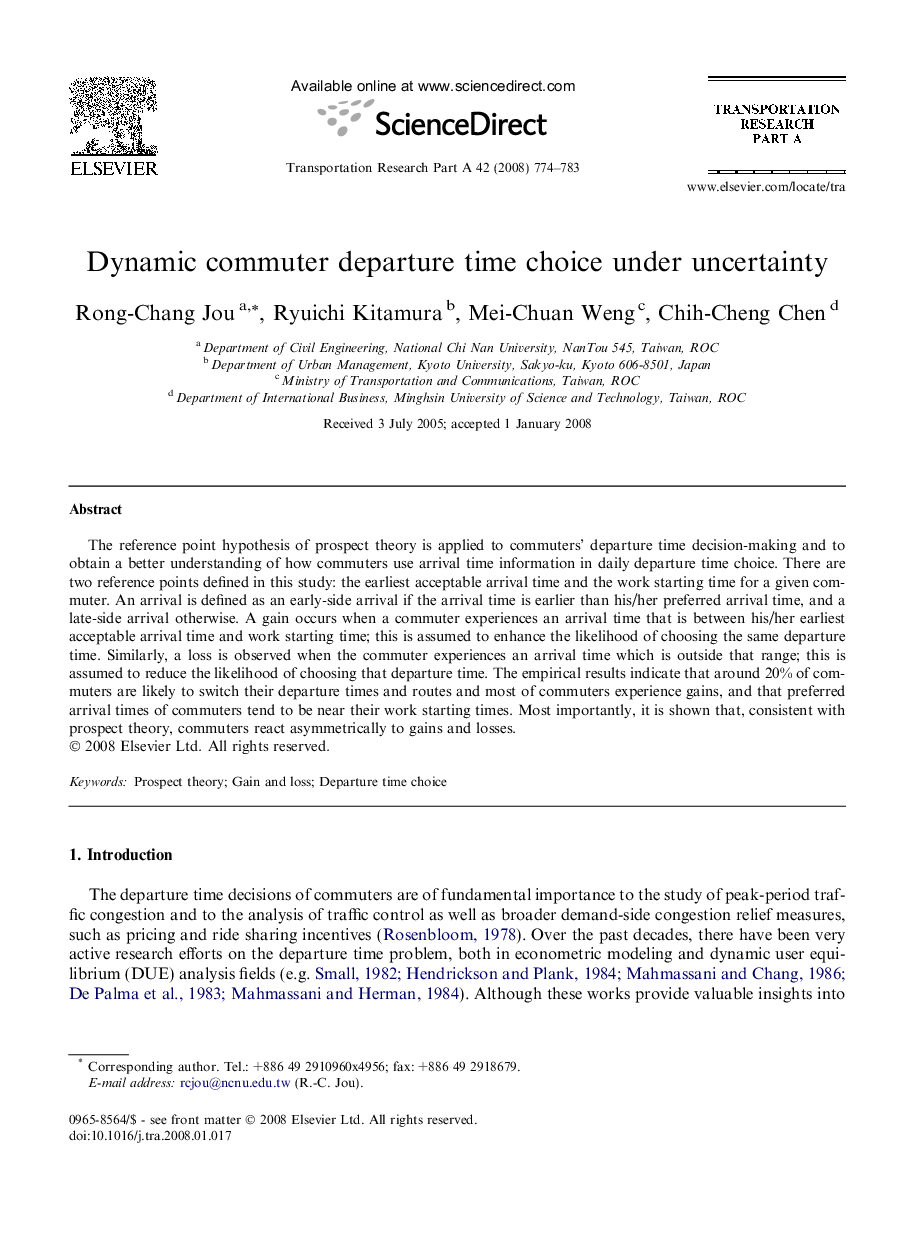| کد مقاله | کد نشریه | سال انتشار | مقاله انگلیسی | نسخه تمام متن |
|---|---|---|---|---|
| 310530 | 533178 | 2008 | 10 صفحه PDF | دانلود رایگان |

The reference point hypothesis of prospect theory is applied to commuters’ departure time decision-making and to obtain a better understanding of how commuters use arrival time information in daily departure time choice. There are two reference points defined in this study: the earliest acceptable arrival time and the work starting time for a given commuter. An arrival is defined as an early-side arrival if the arrival time is earlier than his/her preferred arrival time, and a late-side arrival otherwise. A gain occurs when a commuter experiences an arrival time that is between his/her earliest acceptable arrival time and work starting time; this is assumed to enhance the likelihood of choosing the same departure time. Similarly, a loss is observed when the commuter experiences an arrival time which is outside that range; this is assumed to reduce the likelihood of choosing that departure time. The empirical results indicate that around 20% of commuters are likely to switch their departure times and routes and most of commuters experience gains, and that preferred arrival times of commuters tend to be near their work starting times. Most importantly, it is shown that, consistent with prospect theory, commuters react asymmetrically to gains and losses.
Journal: Transportation Research Part A: Policy and Practice - Volume 42, Issue 5, June 2008, Pages 774–783